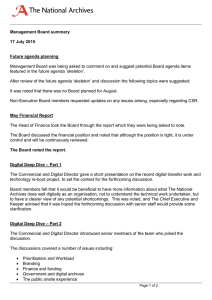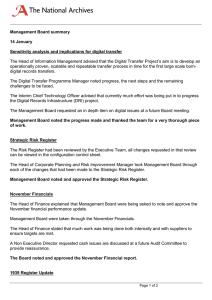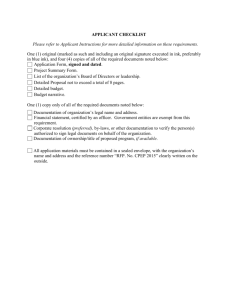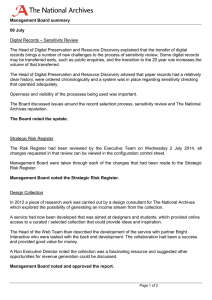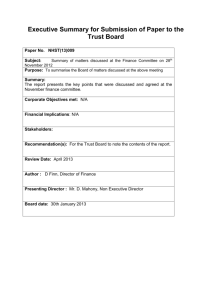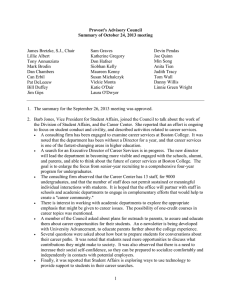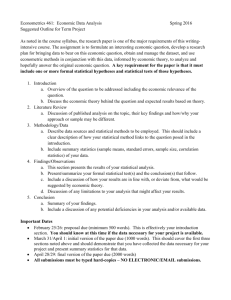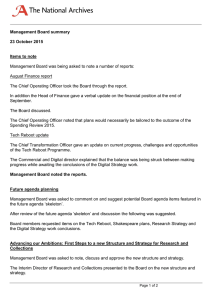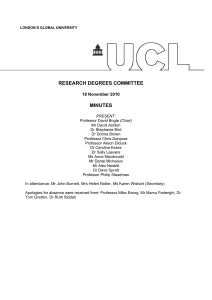UNIVERSITY OF WARWICK English Postgraduate SSLC Minutes 25/11/15
advertisement
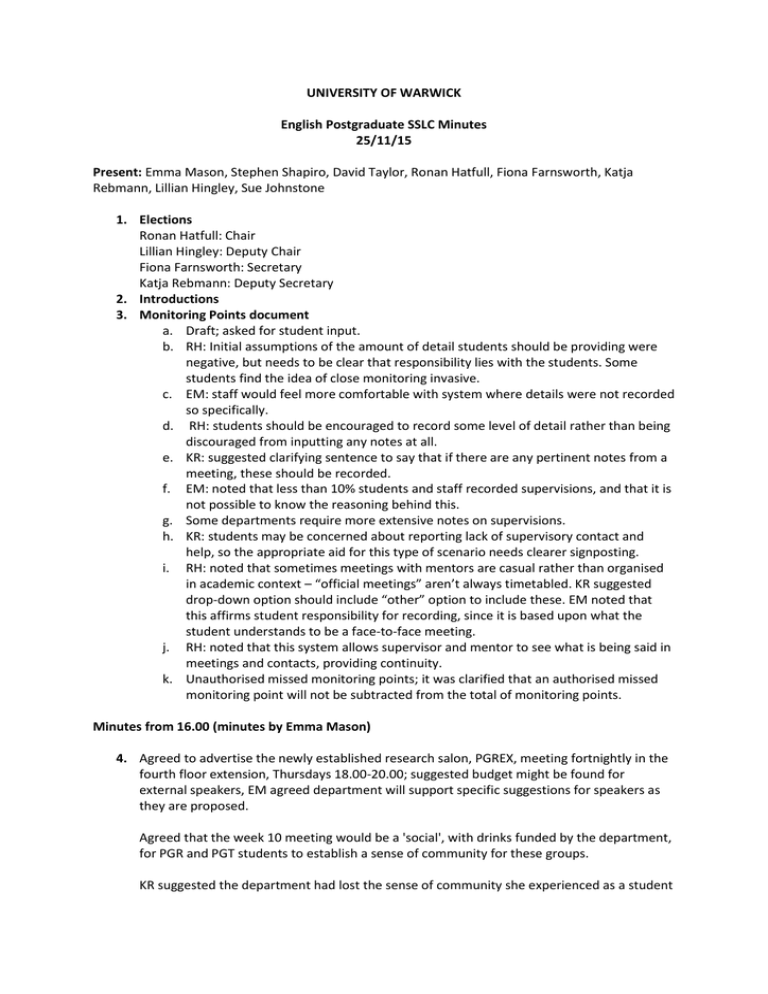
UNIVERSITY OF WARWICK English Postgraduate SSLC Minutes 25/11/15 Present: Emma Mason, Stephen Shapiro, David Taylor, Ronan Hatfull, Fiona Farnsworth, Katja Rebmann, Lillian Hingley, Sue Johnstone 1. Elections Ronan Hatfull: Chair Lillian Hingley: Deputy Chair Fiona Farnsworth: Secretary Katja Rebmann: Deputy Secretary 2. Introductions 3. Monitoring Points document a. Draft; asked for student input. b. RH: Initial assumptions of the amount of detail students should be providing were negative, but needs to be clear that responsibility lies with the students. Some students find the idea of close monitoring invasive. c. EM: staff would feel more comfortable with system where details were not recorded so specifically. d. RH: students should be encouraged to record some level of detail rather than being discouraged from inputting any notes at all. e. KR: suggested clarifying sentence to say that if there are any pertinent notes from a meeting, these should be recorded. f. EM: noted that less than 10% students and staff recorded supervisions, and that it is not possible to know the reasoning behind this. g. Some departments require more extensive notes on supervisions. h. KR: students may be concerned about reporting lack of supervisory contact and help, so the appropriate aid for this type of scenario needs clearer signposting. i. RH: noted that sometimes meetings with mentors are casual rather than organised in academic context – “official meetings” aren’t always timetabled. KR suggested drop-down option should include “other” option to include these. EM noted that this affirms student responsibility for recording, since it is based upon what the student understands to be a face-to-face meeting. j. RH: noted that this system allows supervisor and mentor to see what is being said in meetings and contacts, providing continuity. k. Unauthorised missed monitoring points; it was clarified that an authorised missed monitoring point will not be subtracted from the total of monitoring points. Minutes from 16.00 (minutes by Emma Mason) 4. Agreed to advertise the newly established research salon, PGREX, meeting fortnightly in the fourth floor extension, Thursdays 18.00-20.00; suggested budget might be found for external speakers, EM agreed department will support specific suggestions for speakers as they are proposed. Agreed that the week 10 meeting would be a 'social', with drinks funded by the department, for PGR and PGT students to establish a sense of community for these groups. KR suggested the department had lost the sense of community she experienced as a student here in 2013 and the committee agreed it was important to re-establish this. SS suggested PGREX could invite staff members to share stories about their careers to date: the suggestion was warmly received. 5. LH noted there was some panic among MA students about the 'provisional title' issue. EM, DT and SS confirmed these titles are not binding, and that topics or titles were acceptable and can be changed by emailing the module tutor to notify him/her about this change. 6. RH noted that some of the PGR students had questioned the value of the Research Methods essay. Students were happy to do the module itself and attend workshops and participate more generally, but they were confused as to the validity of the essay itself. EM stated this would be discussed as part of a wider discussion about the PGT/PGR program in the department.
